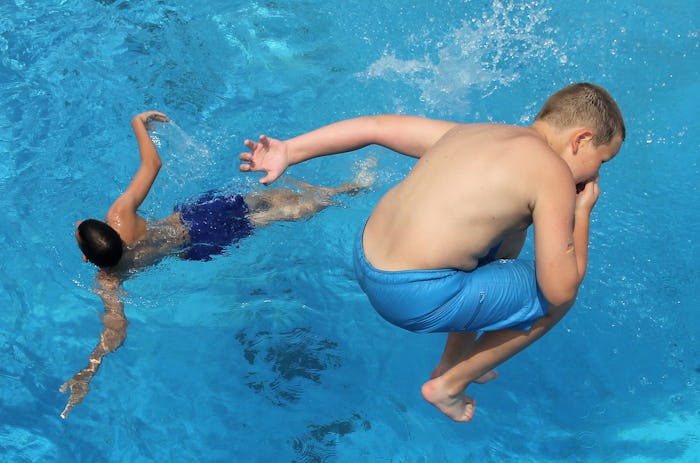News

Diarrhea-Causing Swimming Pool Parasite On The Rise
Summer is right around the corner, but before you take out the pool toys and swimsuits for the season, public health officials want parents to be aware of an outbreak of a diarrhea-causing parasite called cryptosporidium that’s been linked to swimming pools and water playgrounds. According to a recent report from the Center for Disease Control and Prevention (CDC), infections related to the germ ― nicknamed “crypto” ― have doubled in the United States over the last two years, with 16 outbreaks in 2014 and 32 cases two years later in 2016 that all occurred in public aquatic settings.
People who are ill with a cryptosporidium infection will most likely experience several bouts of watery diarrhea, according to the Mayo Clinic. It’s known to happen after ingesting or swallowing even a handful of contaminated water from pools, recreational water parks or aquatic playgrounds, hot tubs, as well as lakes and streams. And although most swimming pools are normally treated with chlorine, cyrpto is extremely hard to kill because it's resistant to the chemical and can live can for days in chlorinated water, according to the CDC.
Other common symptoms can include stomach cramps or pain, nausea, vomiting, fever, and weight loss ― which can all possibly lead to dehydration as well ― according to the CDC, adding that symptoms "may go in cycles." So you may feel better for a few days and then may feel worse again until the illness completely ends. Most people will feel better in about one or two weeks.
"Parents can encourage their children not to swallow the water when swimming," Michele Hlavsa, chief of the CDC's Healthy Swimming Program, told CNN of the outbreak. “Also, take kids on bathroom breaks every hour, and check diapers in a diaper-changing area and not right next to the pool.”
She continued, “We all share the water we swim in, but we don't want to share germs, pee or poop.”
The CDC reports those who are at most risk of an infection include children who attend day care centers ― including diaper-aged children ― parents of children who have been infected, and child care workers.
While most healthy people will recover without treatment, parents should be aware of the risk of dehydration — especially dangerous for young children and pregnant women — related to diarrhea and make sure their little ones are drinking plenty of fluids while they recover.
Given how difficult it is to kill the parasite, one of the best ways to the reduce the risk of further outbreaks and to help others stay healthy is for parents to keep their children out of swimming pools or other aquatic venues if they are sick with diarrhea — as just being in the water can be enough for contamination to occur.